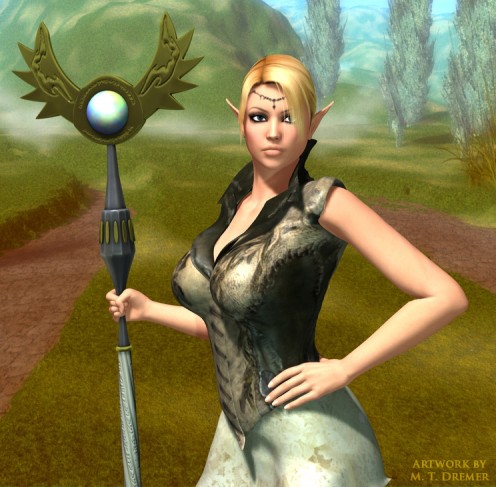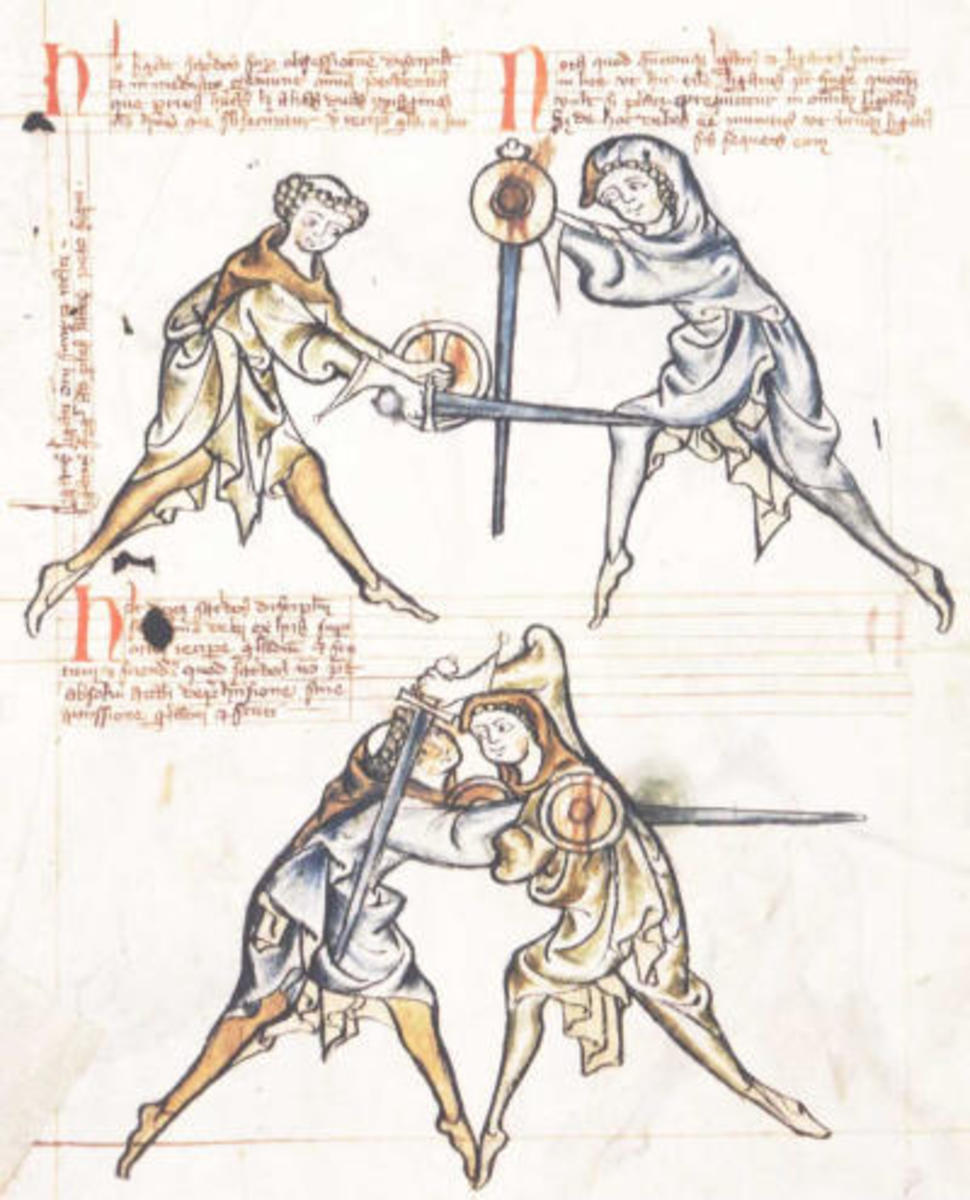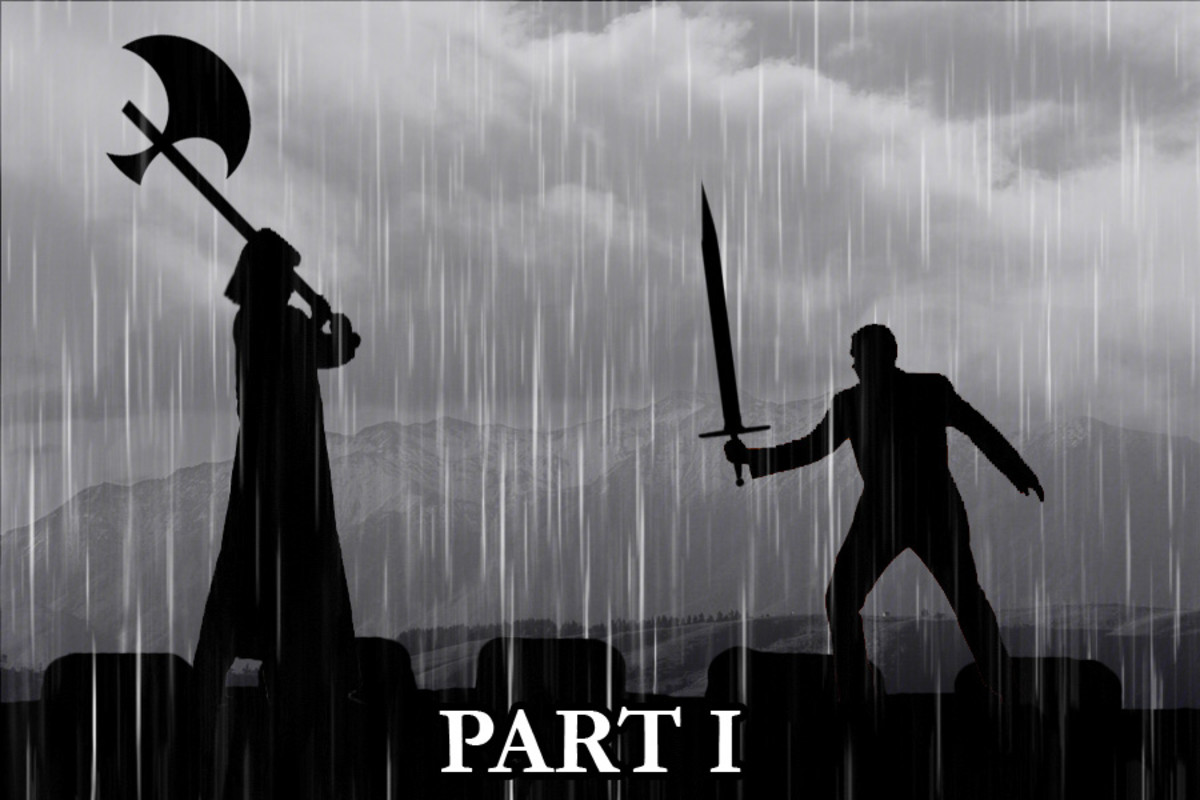Originality in Your Fantasy Novel: Pros and Cons

This is a subject I’ve touched on in several other hubs, most notably ‘How to Write for Yourself’, which stresses how ‘what you want to write’ is more important than ‘what you think you should be writing’. But there is a legitimate question, when writing fiction of any kind, how much of your energy to focus on making things seem new and original, versus using clichés, tropes and staples (which are faster and more familiar). I find this subject to be particularly important for fantasy authors because we create our worlds from scratch. There are numerous influences throughout, but the question of originality, versus steadfast standbys, is constantly on our minds.
It should be noted that I’m not really referring to the narrative or plot of a story. While everyone hopes that their story is one of a kind, that old adage holds true that ‘all great writers steal’. With the sheer volume of stories available, it’s unlikely you’ll strike on that one elusive concept that no one has thought of before. But this isn’t a cause for distress. What makes your story original is your telling of it, and how it impacts your characters and setting. I can point back to every influence for each of my novels. And yet, if I didn’t lay it out, no one would ever know one was inspired by the other. Think of it as a neat fail-safe of editing. So, when conceptualizing, don’t worry if your story is too close to your favorite book or movie. That’s actually a great place to start because it hones in on something you like and ensures you will like your novel as well. Passion for the work is an invisible force that the reader can feel radiating off the page.

Creatures
There was a line I used in my beginner’s guide to genre fiction, where I talked about not creating unnecessary words to describe existing things. The example line was “they were eating doba in the snarg” as an ‘original’ way of saying “they were eating bread in the forest”. The flaw illustrated in this example was that needlessly renaming things proved confusing for the reader. This doesn’t need to be as strict with naming original creatures, but it should still be given careful thought. Because, your reader will understand “The vampires had entered the dwarven fortress,” more than they will “the dornacks had entered the skeevian fortress.” This is where you must decide what is most important to you. An original creation, or a quicker writing/reading experience. Because, if you introduce a new creature, that creature must be explained to the reader eventually.
Even fantasy novels based entirely in worlds with no ties to our own, often explain fantastical creatures with comparisons to real-world animals. I.e. ‘it was the size of a lion’ or ‘had teeth like a shark’. Fantasy monsters, like vampires and dragons, have the benefit of being used so often that most of the general population already knows the gist of them. Your dragons might be entirely different from Anne McCaffrey’s dragons, but you can refer to a dragon in your story without having your main character say “A dragon? What’s that?”
Original Creatures
Pro: Something the audience has never seen before.
Con: Takes more work to describe.
Clichéd Creatures
Pro: Easy to write for and quickly understand.
Con: Everyone has seen it before.
Locations
The great dwarf city in the mountains, the elf village in the forest, the orcs and ogres under the ground; what do these all have in common? Well, if you enjoy reading fantasy, then there is a good chance you’ve seen all of them before. Just like you’ve probably seen a parched desert, serpent-filled ocean and a farm village that is peacefully separated from what is really going on in the world. I addressed this in my article about making a fantasy map, but part of it bears repeating: your world is going to look familiar by design. We can only reinvent geology and physics so much before even we can’t understand how it works.
Having said that, where your character goes and how he interacts with that environment, is going to determine how ‘original’ it is. And, much like with the creatures, the more original stuff will likely take more time to explain. For example, you might take them to a desert that is very hot, but water is plentiful. Or maybe your elves live in the mountains, instead of dwarves. Whatever the case, you’ll need to be prepared that your audience might be a bit confused by this switch up. Why didn’t the water in the desert dry up? Why are those elves in the mountains instead of the forest? What’s interesting about clichéd concepts and characters is that they also have an opposing reaction when you try to do them differently. A good example is Twilight, wherein Stephanie Meyer took away virtually all characteristics of a vampire (particularly their fangs and the lethality of the sun), at which point there were many readers who loudly proclaimed those weren’t vampires. Technically speaking, the author could have done whatever she wants because vampires don’t actually exist. But, these frequently used things have created an unspoken standard about what they should and shouldn’t be. So, you don’t necessarily have to explain why your elves live in the mountains, but you can be certain your reader is going to question it, which could have just as negative an impact as a positive one.
Original Locations
Pro: Opportunity to put a twist on a boring environment.
Con: Stretch too far and readers might question the explanation.
Clichéd Locations
Pro: Most places already make sense from a geological perspective.
Con: Pigeon-holes what you can do with that setting.

Characters
“The grizzled ranger rubbed a gloved hand over his stubble as he surveyed the inn from a dark corner.” Anyone who has played Dungeons and Dragons (or any of its equivalents) will know that classes are a big part of building a character. Considering how closely related the fantasy genre is to those games, it’s understandable that we would see their equivalents running around in the books we love. As with before, using it as inspiration is fine, but I do think it shouldn’t be their first or most defining characteristic. Otherwise your ranger ends up being just that; a ranger. You want all of your characters to have depth, not because someone else is demanding it, but because you can’t take them the distance without it. Particularly because fantasy books tend to be on the longer side and you want a character who leaves an impression every time we see them. A good rule of thumb is that if there is any point where you forget a character is there, then they either need to be edited out, or have their role bulked up.
Having said that, these character tropes can be used for side characters that we won’t see again. It takes considerable effort to build a good backstory for your main characters, but doing it for every wayward traveler they might encounter would quickly get exhausting, which is where these clichéd rangers might come in handy. If you ever find that this side character is more interesting than your main character, then you might have to again consider whether you’re writing for yourself or for someone else.
Original Characters
Pro: Has enough depth to fill a series of books.
Con: Might not be as quickly relatable to readers.
Clichéd Characters
Pro: Good for quick side characters and as inspiration for main characters.
Con: Might read too much like a D&D campaign.

Conclusion
Here’s a breakdown of where we ended up:
Original Fantasy Novel
Pro: Offers fans something new and different.
Con: A lot of work and possibly harder for the reader to understand.
Clichéd Fantasy Novel
Pro: Quicker to write and easier for your reader to understand.
Con: Same old stuff could quickly get boring.
I would like to say that I haven’t been intending to use ‘cliché’ as a derogatory term in this article. The point I want you to take away from this is that both sides are legitimate forms of writing and both have their respective advantages/disadvantages. I’ve written both and I’ve found that clichéd concepts are slightly more fun to use, because it helps move a story along like a greased slip-and-slide. Whereas I felt that the original concepts resulted in a more polished final product, because I was already paying such close attention to everything.
More likely than not, you’ll probably use some combination of the two for your novel. And that’s totally fine. But I wanted to outline these pros and cons because people who want to use clichéd concepts shouldn’t feel like they are writing ‘trashy’ fiction and people who want to use original concepts shouldn’t feel like they have to avoid every cliché in order to be considered ‘literary’. Ultimately, what is most fun for you to write is what will be most fun for your audience to read.





